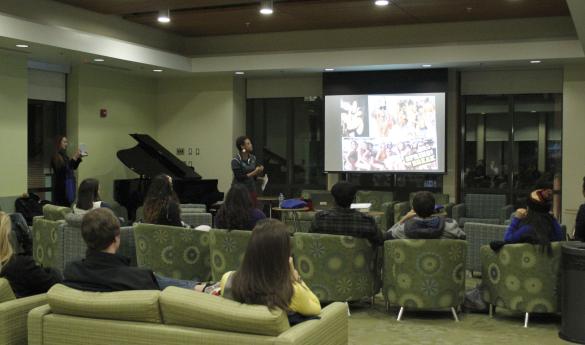WAVES sends students off with tips to keep safe over spring break
While Spring Break can be fun and relaxing, it can prove to be dangerous to some college students. WAVES held safety awareness events during the week of March 2 to help prepare students for Spring Break.
One of the events was called “Sex on the Beach.” Named after the fruity cocktail, Sex on the Beach was an informative event that discussed the dangers of mixing alcohol with sexual activity. According to statistics, 50 to 72 percent of sexual assault perpetrators were under the influence of alcohol in sexual assault cases amongst college students.
“Often times, we hear students say things like, ‘We were both drunk so this can’t be considered sexual assault.’ But that is still sexual assault,” said Angela Johnson, the associate director and wellness coordinator for WAVES. “One of our main goals is to make sure that students know that consequences still happen.”
Unplanned pregnancies and STDs are common consequences of engaging in sexual acts while under the influence. College students are four times more likely to contract Chlamydia and Gonorrhea than the general population.
What can students do to protect themselves during the break?
For people who want to go clubbing or attend a party, knowing their surroundings and having a buddy can greatly decrease the risk of danger. Students can also use the markings on Red Solo cups to measure the amount of alcohol they are consuming. For example, a cup filled to the middle line has a serving equivalent to that of five glasses of wine.
People, who want to engage in sex, are “encouraged to know their [health] status and carry their own contraception, so that they don’t have to depend on others.” Johnson said.
WAVES provides free HIV testing for students, as well as condoms and other methods of contraception. An easy way to remember to stay safe during sex is to think of the acronym C-OPRAH, which stands for Check consent, Open the condom, Pinch the tip, Roll, Action, and Hold the condom when disposing.
Having a plan and a general idea of expectations can also help students who are going to have sex.
“If you are going to have sex, you should have partners that you are willing to communicate with. If you’re going to share your body with someone, you should be able to have a conversation with them about your boundaries.” Johnson said.
Students who would like more information about safe drinking are also encouraged to visit the WAVES office, regardless of their age.
“If you come in and say, ‘I’m 19 and I have a drinking problem,’ we’re going to help you with that problem.” Johnson said.
With the use of common sense and safety strategies, students can ensure that their Spring Break will be memorable because of exciting, not dangerous, experiences.

